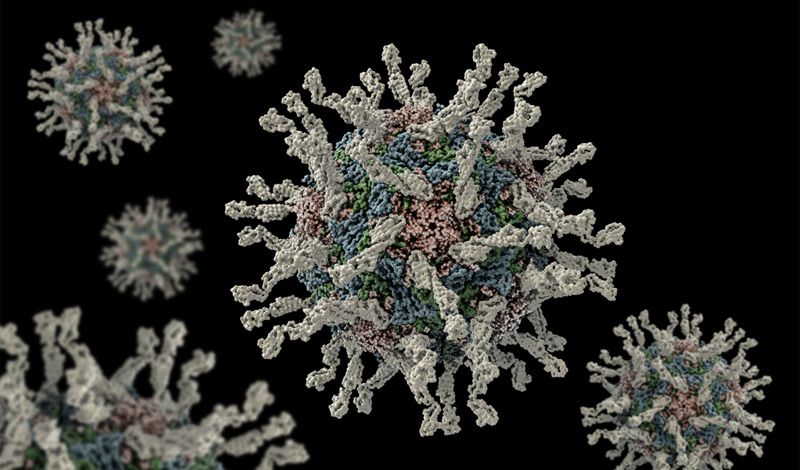In this short inspiring movie, Ben Franklin explains what it means to be a Freemason.
Get the latest international news and world events from around the world.

Neuralink event: what to know about Elon Musk’s highly-anticipated reveal
NEURALINK, ELON MUSK’S HUMAN-BRAIN LINKUP FIRM, WILL HOLD AN EVENT THIS WEEK – and it’s expected to feature a demonstration of the brain’s neurons firing in real-time.
The secretive firm has been relatively quiet since its first public event in July 2019, when Musk and his team explained how the firm plans to use chips to link human brains up to computers. In July 2020, Musk revealed that the company was planning a second event for Friday, August 28. He also reiterated the company’s mission statement: “If you can’t beat ‘em, join ‘em.”
Neuralink is set to hold its next event this week. Here’s what you need to know about the human-brain linkup firm’s plans.

SpaceX: Elon Musk explains why we’ll go to Mars from ocean spaceports
During a Twitter conversation about the future of space travel, the SpaceX CEO confirmed that the Starship vehicle and the Super Heavy booster used to lift it away from Earth will “will mostly launch from ocean spaceports long-term.” Musk later clarified that “occasional flights from land are ok, but frequent (daily) flights probably need ~30km / 18 miles clear area for noise.”
The comments illuminate SpaceX’s thinking around the Starship, which is designed to transport up to 150 tons, or 100 people, into space at a time. The reusable ship measures some 400 feet when paired with its booster. It is expected to take on missions currently completed by the existing Falcon 9 satellite launches, and to enable more ambitious missions, like crewed trips to the Moon and Mars. Its use of liquid oxygen and methane fuel means a crew could feasibly visit Mars, harvest resources from the planet to refuel, and either return home or perhaps venture even furthe.
SpaceX is planning to put its Starship launch pads somewhere in the ocean, far away from city centers.

Did life travel between Earth and Mars? New study supports theory of panspermia
AROUND 4 BILLION YEARS AGO, LIFE BEGAN EMERGING ON EARTH in the form of microorganisms. Whether or not life originated on our planet, or was somehow transported there by way of a traveling asteroid, is one of the biggest questions in astronomy.
Now, a new experiment favors the idea that life ended up on our planet after a long journey through space — by proving that bacteria can in fact survive the trip.
Scientists conducted an experiment onboard the International Space Station that supported the controversial theory of panspermia.

PredaSAR successfully completes Critical Design Review to launch world’s largest SAR satellite constellation
PredaSAR has successfully completed its Critical Design Review (CDR) to begin fabrication, testing and launch of its Synthetic Aperture Radar (SAR) spacecraft, in partnership with Tyvak Nano-Satellite Systems. PredaSAR is building and will operate what is predicted to be the world’s largest and most advanced constellation of SAR satellites. The successful CDR completion marks another major milestone in PredaSAR’s journey and follows its recent announcement of a rideshare partnership with SpaceX to launch its first satellite aboard the Falcon 9 launch vehicle.
PredaSAR spacecraft employ an advanced, proprietary radar payload to create 2D Synthetic Aperture Radar images, 3D reconstructions of objects and the Earth’s surface, and customer-tailored data products. SAR satellites provide high-resolution images at any time of day and in any weather condition, overcoming natural limitations of traditional optical satellites. PredaSAR spacecraft possess the latest in space-proven, high quality satellite systems to support scalable and fully capable operations in any low earth orbit. Leveraging its advanced technologies, PredaSAR will deliver critical insights and data products to military and commercial decision makers at the speed of need.
PredaSAR completes Critical Design Review to begin largest SAR satellite constellation — SpaceWatch. Global.

When Host Diets Are Lacking, Gut Bacteria Pull Together To Survive
To study how the microbiome affects their host behavior, a group of researchers at the Champalimaud Centre used the fruit fly combined with high-tech tools to show that two gut bacteria establish a metabolic cross-feeding that enables them to grow in diets that lack the nutrients that are essential for their growth and to allow them to change host decision making and reproduction. Results reveal a mechanism through which the right combination of bacteria can lead to microbiome resiliency to dietary perturbations and changes in brain function.
New research reveals a mechanism through which the right combination of bacteria can lead to microbiome resiliency to dietary perturbations.


DNA Repair Mechanism
This Video Explains the DNA Repair Mechanisms That Are Mismatched Repair System (MMR), Base Excision Repair (BER) And Nucleotide Excision Repair (NER).
